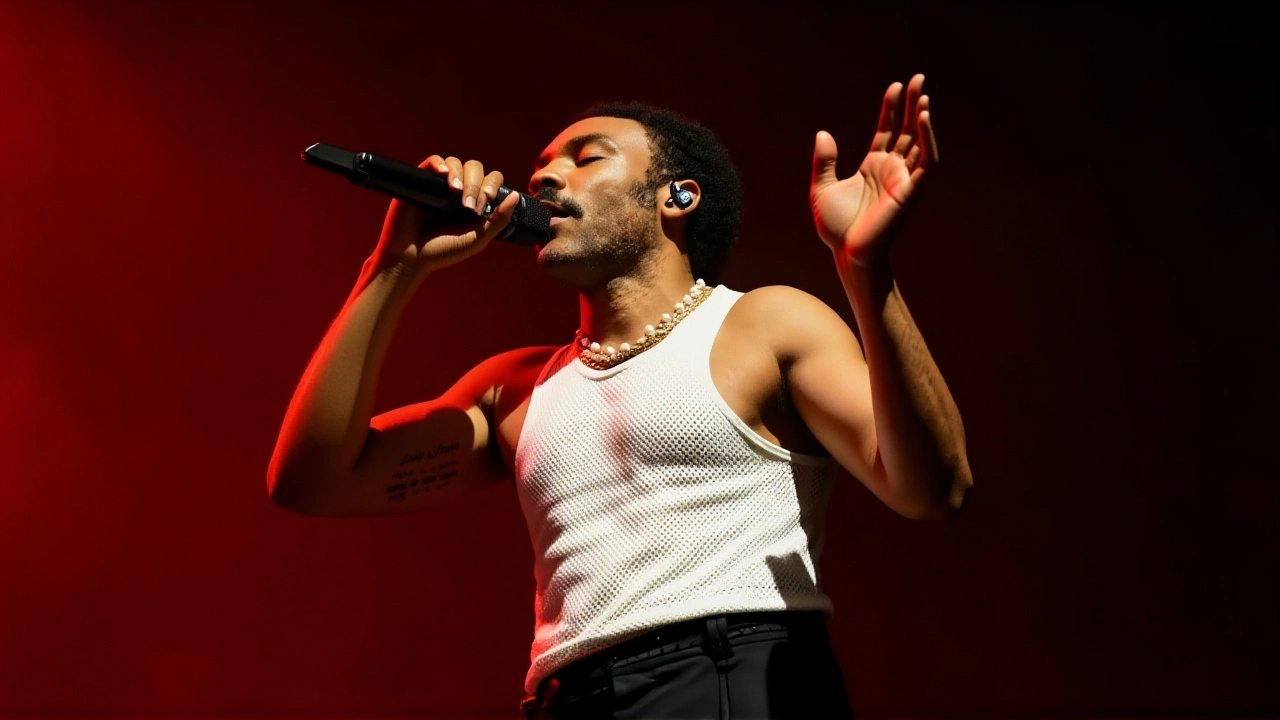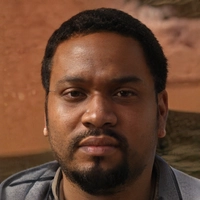On a warm November night in Los Angeles, Donald Glover — better known to millions as Childish Gambino — stood alone on stage at Camp Flog GnawLos Angeles, stripped of his usual theatricality, and told the truth. No music. No lights. Just raw honesty. He had suffered a stroke in 2024. And beneath his skin, for his entire life, there had been a hole in his heart.
The Night the Stage Went Silent
It wasn’t supposed to be like this. Glover was there to celebrate Tyler, the Creator’s annual Camp Flog GnawLos Angeles festival — a cultural touchstone for alternative hip-hop and creative expression. But instead of performing, he spoke. For nearly ten minutes. About pain. About fear. About the quiet, lonely days after the last show of his 2024 tour. He’d first felt it in Louisiana. A crushing headache that didn’t quit. Then, his vision blurred — like a TV losing signal. He pushed through. That’s what performers do. But by the time he reached Houston, Texas, he couldn’t see the lyrics on his monitor. He went to a hospital. That’s when the diagnosis came: ischemic stroke. And then, the second bombshell: a congenital heart defect — a hole, he called it, simple but devastating. "I didn’t tell anyone," Glover said. "I thought I could just... keep going."The Hidden Toll of the Road
The tour cancellation had been chalked up to an "ailment" — a vague, polite term used by publicists to shield fans from uncomfortable truths. But behind closed doors, Glover underwent two surgeries to repair the cardiac anomaly. He spent months in recovery, relearning how to breathe without fatigue, how to stand without dizziness. He didn’t perform publicly again until this night. The stroke, doctors later explained, was likely caused by a paradoxical embolism — a blood clot that slipped through the hole in his heart and traveled to his brain. It’s rare, but not unheard of in people with undiagnosed congenital defects. Many live their whole lives without knowing. Glover was 40 when it happened. He was mid-tour. He had just released his most critically acclaimed album in years. "I thought I was just tired," he admitted. "Turns out, my body was screaming. And I didn’t listen."What He Didn’t Say — And What Fans Heard
There was no bitterness in his voice. No anger at the industry, the schedule, the pressure. Just gratitude. And regret. He spoke about Ireland — the one country he never got to play. "I promised myself I’d go there," he said, voice cracking slightly. "Now I don’t know if I ever will." But then came the moment that silenced the crowd. "They say everybody has two lives," he said. "And the second life starts when you realize you have one. You got one life, guys. And I gotta be honest — the life I’ve lived with you guys has been such a blessing." It wasn’t a performance. It was a eulogy for the version of himself he’d lost. And a thank-you note to the people who stayed.
Why This Matters Beyond One Artist
Glover’s story isn’t just about celebrity health. It’s about the invisible cost of creative labor. Musicians, actors, comedians — they’re expected to perform through pain, through exhaustion, through grief. We celebrate their stamina. We rarely ask what it costs them. Congenital heart defects affect roughly 1% of newborns in the U.S. Many go undetected until adulthood — often triggered by stress, exertion, or illness. Stroke in people under 45 is rising, especially among those with undiagnosed cardiac issues. Glover’s case is a stark reminder that even the most vibrant among us can be quietly breaking down. Doctors and cardiologists have long warned that touring schedules — sleepless nights, erratic eating, constant travel — can be catastrophic for people with underlying conditions. Glover’s experience is a blueprint for what happens when the system fails to catch it early.What Comes Next
No official statement has been released by Glover’s team. But fans are already speculating: Will he return to music? Will he tour again? Will he speak out about cardiac screening for performers? One thing’s certain: The industry will have to reckon with this. If someone as physically gifted and mentally resilient as Glover could be brought low by a hidden defect, what about the thousands of lesser-known artists grinding through tours with no medical support? There’s talk now of wellness protocols in touring contracts. Of mandatory cardiac screenings for artists on extended tours. Glover didn’t call for change. But by speaking up, he forced it.
A Life, Reclaimed
He didn’t perform a single song that night. Just stood there. And talked. And when he walked off, the crowd didn’t cheer. They wept. For years, Donald Glover gave us characters — a rapper, a TV genius, a comedian who turned loneliness into art. Now, he gave us himself. And it was more powerful than any stage show he’s ever done.Frequently Asked Questions
What caused Donald Glover’s stroke?
Doctors believe Glover’s stroke was caused by a paradoxical embolism — a blood clot that passed through a congenital hole in his heart and traveled to his brain. This is rare but documented in patients with undiagnosed cardiac defects, especially under physical stress like touring. The condition had likely existed since birth but remained asymptomatic until his 2024 tour.
Why didn’t he disclose his condition sooner?
Glover initially attributed his tour cancellation to an "ailment," a common industry euphemism to avoid public concern or speculation. He later revealed he feared being seen as unreliable or "broken." Many artists, especially Black creatives in entertainment, face pressure to appear invincible — a cultural expectation that delayed his disclosure.
Has Glover had any follow-up medical updates?
No official medical updates have been released since his November 2025 disclosure. However, his ability to speak at length on stage without visible distress suggests his recovery has progressed well. He underwent two surgical procedures to repair the heart defect, and doctors typically monitor patients like him for years to prevent recurrence.
Could this happen to other artists?
Absolutely. Congenital heart defects often go undetected until adulthood, and touring conditions — irregular sleep, dehydration, high stress — can trigger complications. While Glover is a high-profile case, countless musicians and performers operate without access to consistent medical care. His story has sparked calls for mandatory cardiac screenings in entertainment contracts.
What’s the significance of him mentioning Ireland?
Ireland was a personal milestone Glover had vowed to reach — a country he admired for its music and culture. His regret over never performing there underscores the emotional weight of his cancellation. It wasn’t just a lost show; it was a broken promise to himself. Fans interpreted it as a symbol of all the moments illness stole from him — a quiet, devastating detail that made his revelation even more human.
Will Childish Gambino return to music?
Glover didn’t say. But his emotional, unscripted performance suggests he’s not done creating. He didn’t sing — but he spoke with the same artistry that defined his music. Many believe his next chapter may not be albums, but storytelling — perhaps film, theater, or spoken word. The door is open. The music might return. But for now, his voice — real, raw, and unfiltered — is enough.

